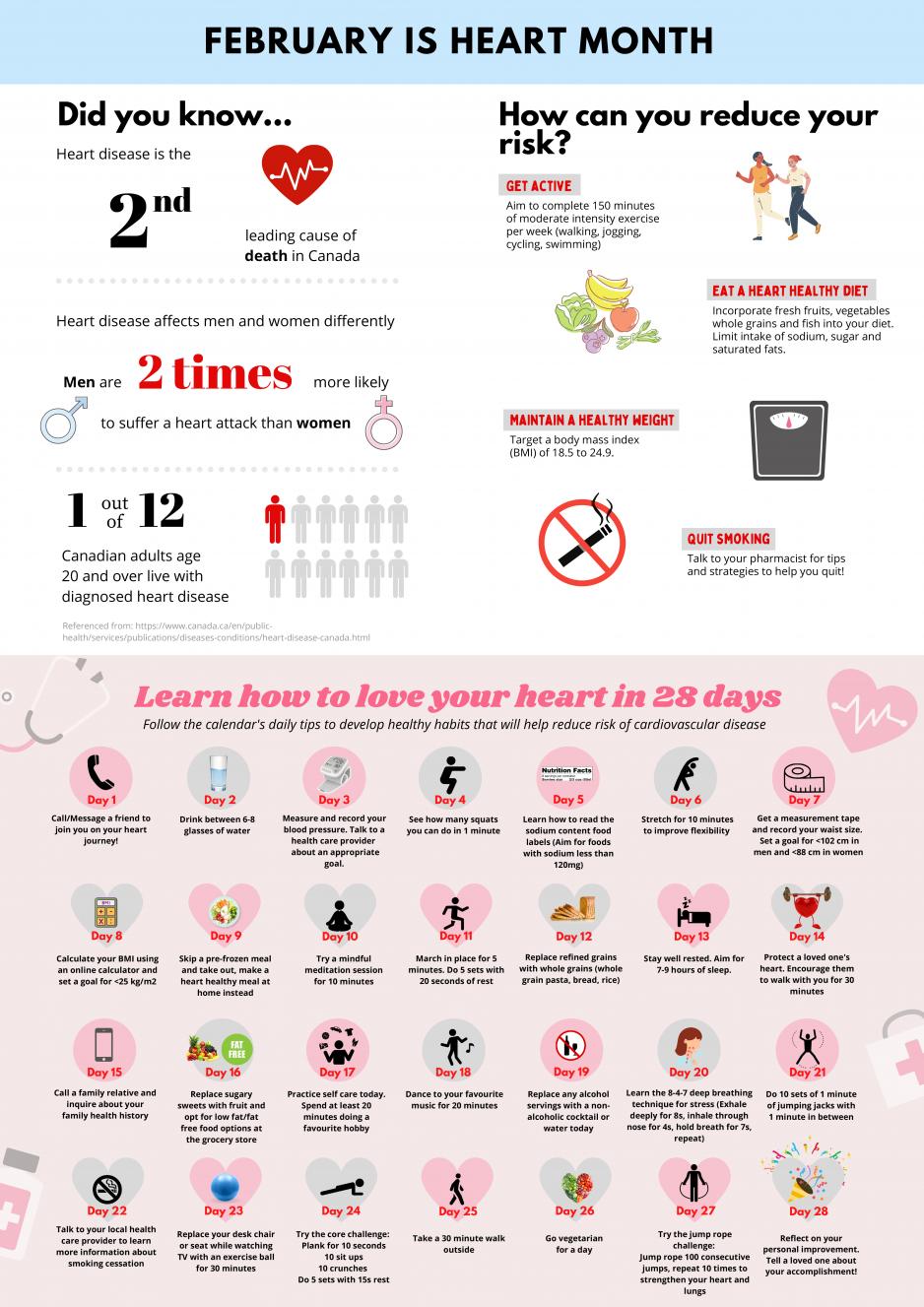New virtual learning assignment allows PharmD students to practise skills in patient education
When courses shifted online during the pandemic, instructors needed to rethink their teaching and assessments. For Assistant Professor - Status Heather Kertland, an instructor for the second year PharmD course on cardiovascular disease, this included introducing a new kind of assignment that would let students flex their creative muscles and demonstrate their knowledge relating to patient education.
Kertland, also a clinical pharmacy specialist in the Heart, Vascular and Respiratory Program at St. Michael’s Hospital, typically includes patient education themes in the course, but she developed a new assignment this year to help students develop those skills even further.
“Working in cardiology, we often encounter patients who need to start taking chronic medications for the first time and educate them about why they’re taking them and how it will impact their health,” she says. “I see from my practice that messaging this information is such an important skill to have.”
She asked students, working in pairs or alone, to create educational materials promoting heart health that could be useful for the general population. She encouraged them to be creative and think about different ways to share their knowledge of cardiovascular disease and risk factors.
“It provided an opportunity to reinforce to students the role that pharmacists have in health promotion,” says Kertland. “We concentrate so much on medications and appropriate use, but it’s also important for students to have an opportunity to think about how they can affect the general health of the population.”
Her students responded enthusiastically to the assignment, submitting engaging education tools that used colours, graphics and plain language to educate patients about different aspects of heart health, including benefits of quitting smoking, tips for healthy eating and increasing physical activity. Some of the students targeted specific populations and tailored the messaging to those groups.
“I was really impressed when students further researched and thought about how to target that message,” says Kertland. “It was nice to see the students respond so well to the assignment. I really appreciate the efforts they made.”
Assignment helps prepare students for rotations
Second year PharmD students Marigrace Gorospe and Jenna Rizzo worked together to create a calendar with daily activities to help build healthy habits. They both enjoyed the opportunity to express their creativity, while also creating a tool that provides patients with concrete actions to improve their health.
“It’s very easy to just tell someone you need to exercise more, you need to eat healthier, you need to lose more weight, but a lot of people don’t know how,” says Gorospe. “Our calendar visually shows patients how they can adapt and incorporate these suggestions about diet, physical activity, stress reduction and self-care into their everyday lives.”
Gorospe says that she thought about her loved ones at risk of cardiovascular disease when working on the assignment and how she could create a tool that they would use and benefit from.
“It’s our role as pharmacists to make sure that patients are provided with relevant, important information,” adds Gorospe. “This was an opportunity to try and educate patients in a different medium than we normally do.”
Rizzo says that the assignment has helped her to think about the pharmacist’s role in patient education, especially related to cardiovascular risk factors and disease, and she hopes that she will be able to use the new materials in upcoming rotations.
“The PharmD is a very rigorous program and it’s easy to get caught up in a lot of the clinical knowledge that we learn. Sometimes it’s easy to forget the importance of being able to communicate to patients in a meaningful way,” she says. “This assignment helped prepare us for our upcoming rotations and allowed us to think purposefully about how we would educate patients in practice as future pharmacists.”
By Eileen Hoftyzer
More News
Image

Trade tariffs on pharmaceuticals ‘not the way to go’: U of T expert releases new study showing disruptions and cost increases
Trade tariffs on Canadian pharmaceuticals expected to increase costs in the U.S. and strain drug supply chains.
Read More
Image

Northern Ontario rotation inspires new perspective on pharmacy practice
Alina Montgomery’s rotation on Manitoulin Island demonstrated the importance of pharmacists in northern communities
Read More
Image

PharmaSEE mentor shares breadth of opportunities in pharmacy profession
With patient care and industry experience, Seann Seto shares perspectives and insights with PharmD students.
Read More

